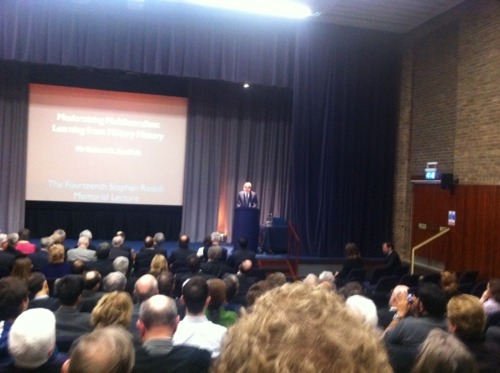“The further back you look, the further forward you can see”
This quote, by Winston Churchill, formed the crux of a talk that I attended on Thursday evening by Robert Zoellick, the President of the World Bank. He was giving the biennial Roskill Lecture at Churchill College, Cambridge.

Zoellick’s theme was the lessons to be learned from military history. Roskill himself was a fellow at Churchill and a naval Captain.
The talk focussed on the ways in which the multilateral institutions of today, in particular the Bank, should be ready to learn lessons from the military, these include being ready to adapt a plan, showing leadership in order to modernise, and engaging military stakeholders, such as naval fleets in negotiations over sovereign rights over waters.
Zoellick also defended the World Bank’s recent record, citing the open data project to increase transparency he implemented, the newly announced ‘save our seas’ plan, and the green fund that’s already up and running (while, Zoellick says, the UN continues to try to figure out what a green fund should look like).
He also focussed on a lesson from business – that developing countries should not be seen as grateful receivers of aid, but that the relationship should be one of patron-client.
Zoellick’s allusion to the military was not merely rhetorical – he sees the problems of development as increasingly linked to sustainability, natural resource depletion and, ultimately, international security.
His way of framing his talk was innovative, and Zoellick is an excellent public speaker. However, for me seeing development issues through a military lens (whether rhetorically or literally) is a worrying indication that the Bank perhaps not only sees itself as a shaper of developing world economies (a problematic enough role as history attests) but also now as an arbiter of international conflict and potentially big player in security issues.
Zoellick argued that having a US head of the bank forces the USA to confront these issues and that this is a positive thing. However, the special interest nature of the Bank, combined with this military framing is unsettling to say the least.
